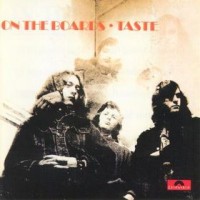
I couldn’t imagine being a guitar player in the mid sixties to early seventies. Players were evolving faster than the sound of the notes they played. Hendrix came from a parallel world and was changing everything, Clapton was making his mark, along with Jeff Beck, Jimmy Paige, and Carlos Santana just to name a few. Meanwhile, a reclusive Irishman named Rory Gallagher was tearing it up with his Stratocaster, earning a fraction of the recognition of what the aforementioned players were gaining. Gallagher’s second record, On the Boards (1970) with his power trio Taste, is one of hard rock’s understated gems, a fiery, raw blend of blues-rock, jazz, folk, country, and sophisticated progressive rock. All three players shine in this stripped down affair. The opening track, “What’s Going On” is a biting, hard rockin’ ominous number about social discord and the mixed signals of the times that are felt through Gallagher’s gruff voice. There’s the jazzy swagger of “It’s Happened Before, It’ll happen Again” (he also blows a convincing sax on this track). “If the Day was Any Longer” is a vulnerable ballad with an earnest seduction too it; some sweet harmonica augments the tenderness. Side two begins with some elaborate slide guitar workouts on “Eat my Words” that would make Duane Allman’s eyebrows rise. The title track is another jazz-tinged tune; Gallagher’s Strat chimes with bright, clean tones but contradicts this with a dark melody. “See Here” is an acoustic track that has a searching, yet sweet lullaby vibe too it that never seems to resolve musically (in the good way). There are also some basic blues rockers that could’ve easily gone into tired, honkey- tonk, bar fight territory but were saved not only by Gallagher’s astounding guitar playing but his intricate song writing as well. Rory Gallagher was a guitar player’s guitarist, but to the general public one of the most (arguably the most) overlooked guitar players of all time; who knows why; maybe he just wasn’t “psychedelic” enough. All that put aside, On the Boards is a remarkable album; and a true testament to his masterful six string navigation and his brilliant song craft. —ECM Tim
How does it feel to be the greatest guitarist in the world? I don’t know, go ask Rory Gallagher.’ —Jimi Hendrix


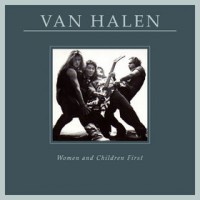
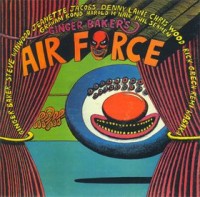
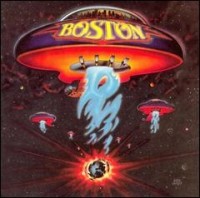
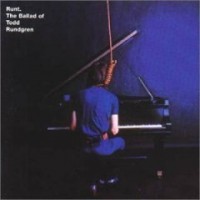
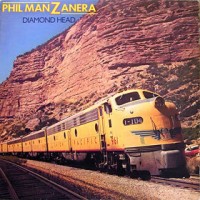
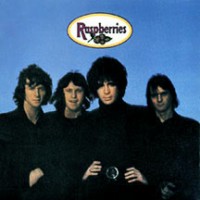
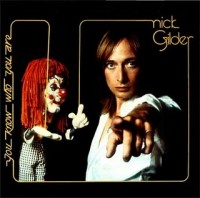
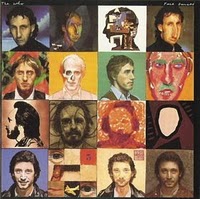 Excluding the classic rock radio staple “Eminence Front” from 1982’s “It’s Hard,” the eighties weren’t terribly kind to The Who. At the time of “Face Dances” release, fans were still mourning the loss of Keith Moon while punk and emerging new wave were stealing press space and radio air-waves. It’s difficult to imagine now how proto-punkers like The Who couldn’t have easily coexisted alongside The Clash, but at the time they were considered almost polar opposites. (Long time Seattleites might remember both camp’s negative reaction at that disastrous double bill in the Kingdome in ’82). Listening now, though, and judged on it’s own merits, “Face Dances” is surprisingly enjoyable and this underdog of an LP finds its way onto my turntable and ipod more often than “Who’s Next.” “Face Dances” is definitely not in league with the aforementioned classic but neither has it been played to death for the last twenty-five years. Also, I now prefer a introspective Pete Townshend even if Roger Daltry still delivers his words with all the gusto of “Baba O’Riley.” For anyone who’s written this one off, pick up the next 99¢ copy you see and give it a fresh listen the way you might approach a Townshend or Entwistle LP. Not only does it contain some of Townshend’s finest (Don’t Let Go The Coat) and oddest lyrical moments (Did You Steal My Money, Cache Cache), it features the “quiet” Entwistle’s least quiet moment, “The Quiet One” along with everyone’s favorite guilty Who-pleasure, “You Better You Bet” and the album closer’s lost gem, “Another Tricky Day.” –David
Excluding the classic rock radio staple “Eminence Front” from 1982’s “It’s Hard,” the eighties weren’t terribly kind to The Who. At the time of “Face Dances” release, fans were still mourning the loss of Keith Moon while punk and emerging new wave were stealing press space and radio air-waves. It’s difficult to imagine now how proto-punkers like The Who couldn’t have easily coexisted alongside The Clash, but at the time they were considered almost polar opposites. (Long time Seattleites might remember both camp’s negative reaction at that disastrous double bill in the Kingdome in ’82). Listening now, though, and judged on it’s own merits, “Face Dances” is surprisingly enjoyable and this underdog of an LP finds its way onto my turntable and ipod more often than “Who’s Next.” “Face Dances” is definitely not in league with the aforementioned classic but neither has it been played to death for the last twenty-five years. Also, I now prefer a introspective Pete Townshend even if Roger Daltry still delivers his words with all the gusto of “Baba O’Riley.” For anyone who’s written this one off, pick up the next 99¢ copy you see and give it a fresh listen the way you might approach a Townshend or Entwistle LP. Not only does it contain some of Townshend’s finest (Don’t Let Go The Coat) and oddest lyrical moments (Did You Steal My Money, Cache Cache), it features the “quiet” Entwistle’s least quiet moment, “The Quiet One” along with everyone’s favorite guilty Who-pleasure, “You Better You Bet” and the album closer’s lost gem, “Another Tricky Day.” –David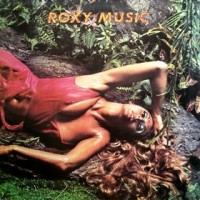
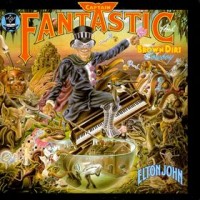
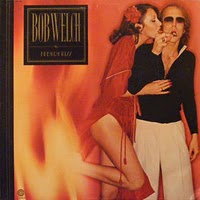 Following a brief affair with heavy rock on the pair of Paris releases, Bob Welch puckers up and lands a solo soft rock triumph on French Kiss. While some of that guitar crunch remains, it and Welch’s trademark baked goods vocals are wrapped in silky disco strings and dance floor beats throughout the mesmerizing French Kiss. The LP finds Welch as a post-hippie playboy on the prowl through irrepressible entries like the alluring “Ebony Eyes,” “Hot Love, Cold World,” and the Fleetwood/McVie/Buckingham assisted infatuation of “Easy to Fall” and “Sentimental Lady,” originally cut for the Mac’s Bare Trees. Elsewhere the disco-rockin’ “Carolene,” funky “Outskirts,” vintage Welch space-drifter “Danchiva” and sunny Claifornia dreamin’ duo of “Lose my Heart” and “Lose Your Heart” only serve to solidify the album’s appeal – rare is the seventies softie that never dips in quality, all while delivering the lounge lizard magic in such spot-on fashion as on French Kiss. –Ben
Following a brief affair with heavy rock on the pair of Paris releases, Bob Welch puckers up and lands a solo soft rock triumph on French Kiss. While some of that guitar crunch remains, it and Welch’s trademark baked goods vocals are wrapped in silky disco strings and dance floor beats throughout the mesmerizing French Kiss. The LP finds Welch as a post-hippie playboy on the prowl through irrepressible entries like the alluring “Ebony Eyes,” “Hot Love, Cold World,” and the Fleetwood/McVie/Buckingham assisted infatuation of “Easy to Fall” and “Sentimental Lady,” originally cut for the Mac’s Bare Trees. Elsewhere the disco-rockin’ “Carolene,” funky “Outskirts,” vintage Welch space-drifter “Danchiva” and sunny Claifornia dreamin’ duo of “Lose my Heart” and “Lose Your Heart” only serve to solidify the album’s appeal – rare is the seventies softie that never dips in quality, all while delivering the lounge lizard magic in such spot-on fashion as on French Kiss. –Ben